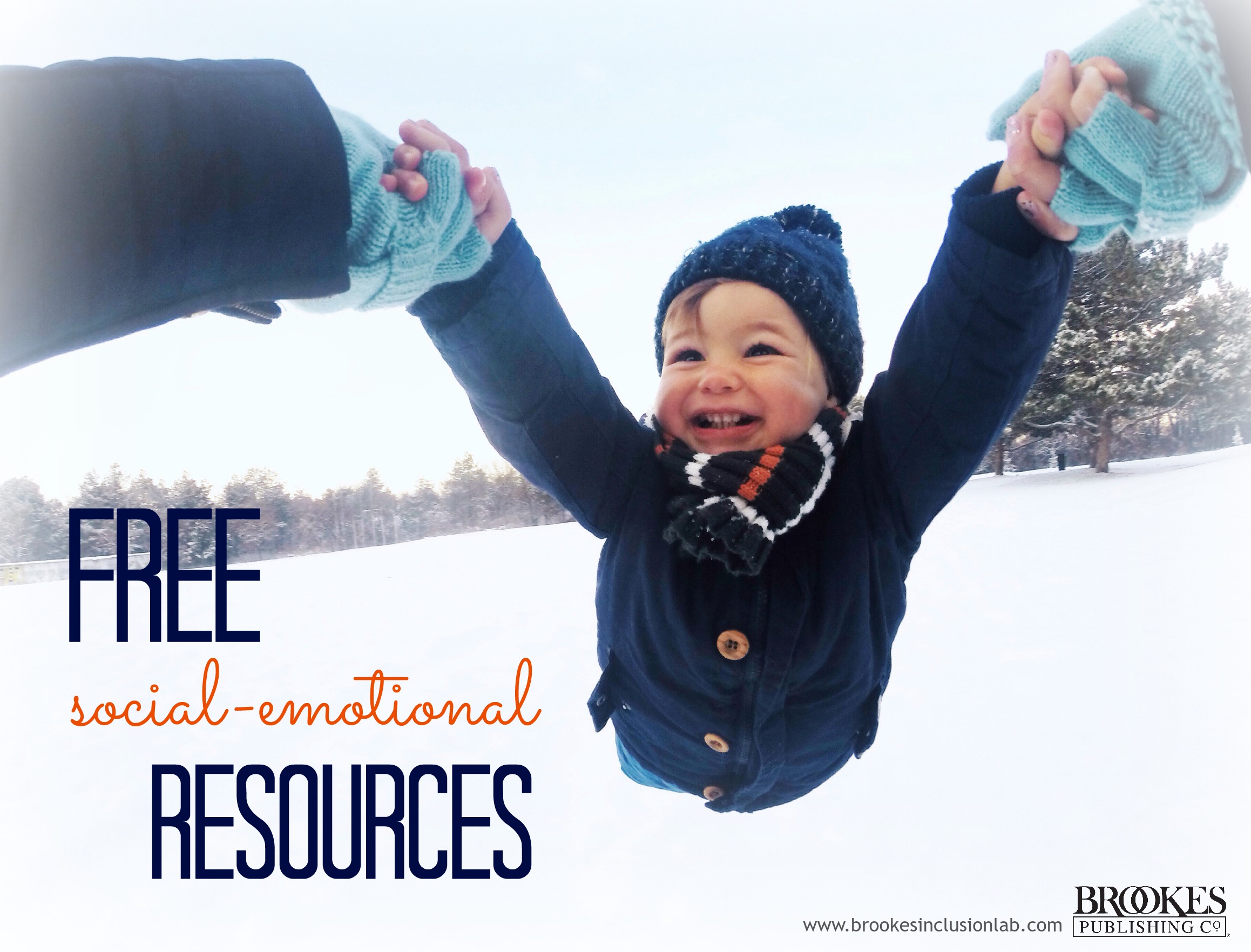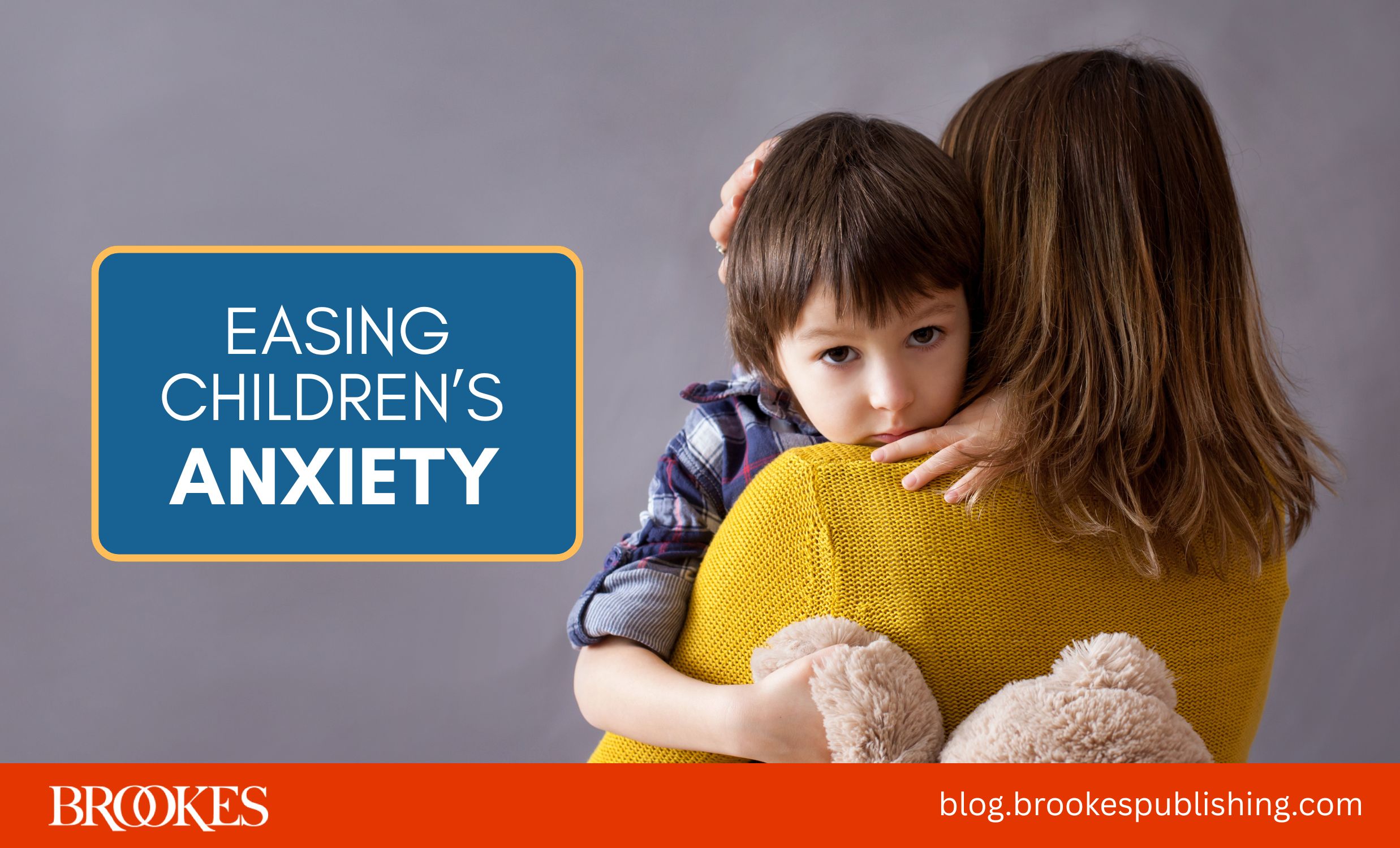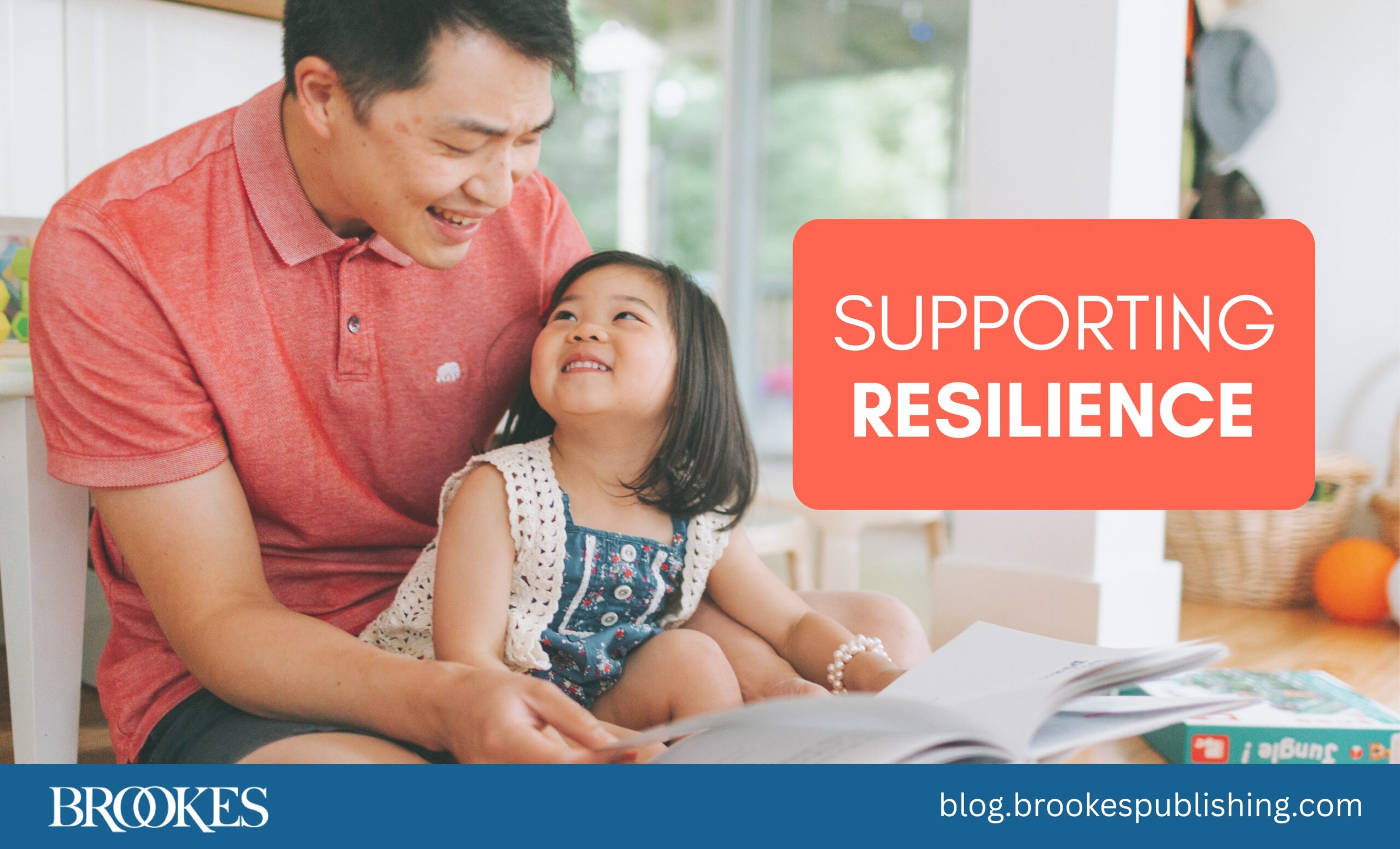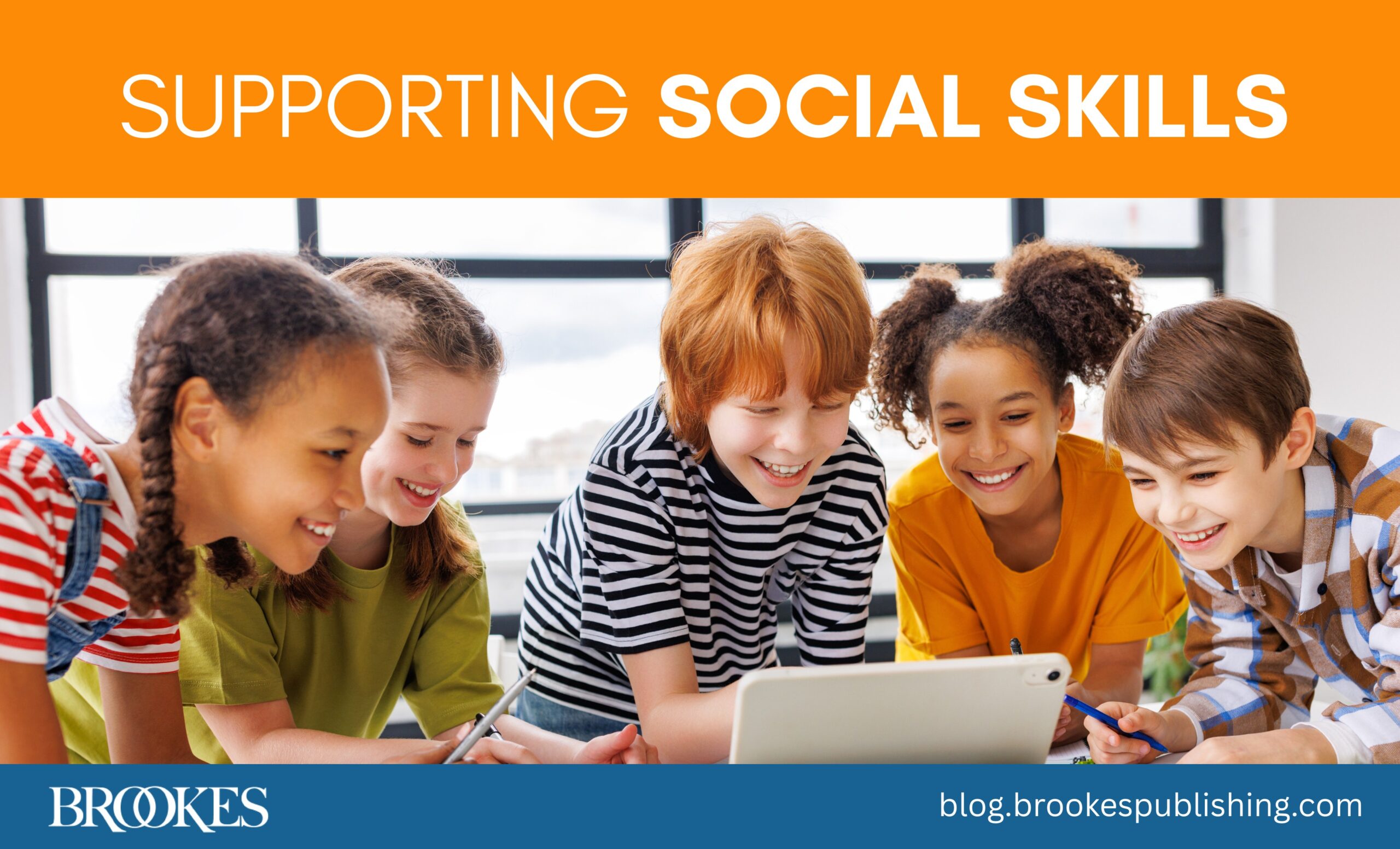10 FREE Social-Emotional Development Resources
January 3, 2017
We talk a lot about the importance of social-emotional development here at the Brookes Inclusion Lab—in 2016, we did a blog series on this vital topic, and we’re planning even more posts for this year. Our posts focus on a wide range of ages and grade levels, but one of the most critical time periods to focus on is early childhood, when young learners’ attitudes and perceptions are just starting to form.
Ensuring that young children develop strong social-emotional skills will help:
Get students ready for school. Promoting early social and emotional skills is a crucial part of getting kids ready for school; Head Start, for example, lists social-emotional development as one of the pillars of school readiness.
Stop the bullying epidemic. Studies show that the roots of bullying take hold in early childhood. To reduce the high incidence of bullying in schools, educators and parents should focus on promoting social-emotional health and positive, prosocial behaviors when children are very young.
Set every child up for future success in life. Social-emotional skills are a predictor of future success and achievement—a recent study found significant associations between stronger social-emotional skills in kindergarten and better life outcomes in the areas of education, employment, criminal activity, substance use, and mental health.
As the significance of social-emotional development becomes recognized more and more in our legislation and by key early childhood organizations, we’ll be here to help you support the children in your classroom as they develop these critical skills. Here are some practical free resources—from Brookes and some prominent early childhood organizations—to get you started. (If you’re a K-12 teacher, share these with the parents and early childhood educators in your life. And stay tuned: we’ll have posts on social-emotional development in older students later this year.)
Resources from Brookes
ASQ:SE-2 Parent Activities. Share these fun and effective activities with parents to help them promote their child’s social-emotional skills.
Sample lesson for preschoolers. Help kids use “happy talk” with this free lesson from the Strong Start Pre-K social-emotional learning curriculum.
Parent tip sheet. 17 practical ways parents can support the social-emotional development of their young children.
Blog post on stress in young learners. Discover 9 stress-reducing strategies for young learners, from Brookes author Alice Sterling Honig.
Newsletter article on positive interactions. See how to improve behavior in early childhood classrooms by fostering three types of positive interactions: between teachers and children, teachers and parents, and children and parents.
Introduction to effective tools. Get a clear and concise introduction to four resources that can help you track the success of your positive behavioral interventions and supports (PBIS) and ensure that your interventions are helping your young learners.
Resources from Early Childhood Organizations
You’ll find a wealth of information on social and emotional skills at the NAEYC site. Check out “Making Peace in Kindergarten,” an article from NAEYC’s journal Voices of Practitioners, filled with real-world tips on how teachers can support children’s social and emotional learning.
Head Start’s dedicated page on Social & Emotional Development gives you practical tips, articles, webcasts, and more.
A treasure trove of resources awaits you at the ZERO TO THREE site. Get podcasts, videos, and parenting resources on social-emotional topics like empathy, friendships, and cooperation.
Part of the Education Development Center, Inc. (EDC), PromotePrevent has a fantastic 13-chapter online resource on how to prevent bullying in early childhood and teach strong social skills.
As we start a new year, we hope these resources help you encourage strong social-emotional development in the young children you nurture and support. If there are any specific social-emotional topics you’d like to see the Inclusion Lab cover, please contact me at jlillis AT brookespublishing DOT com and let me know!




Write a Comment
Your email address will not be published. Required fields are marked *
comments
Gavrilov says
Probably one of my most liked sites to read in the morning with a cup
of cappuccino of course!
Artem Isayev says
Niсe! Thanks for this article!
Post a Comment